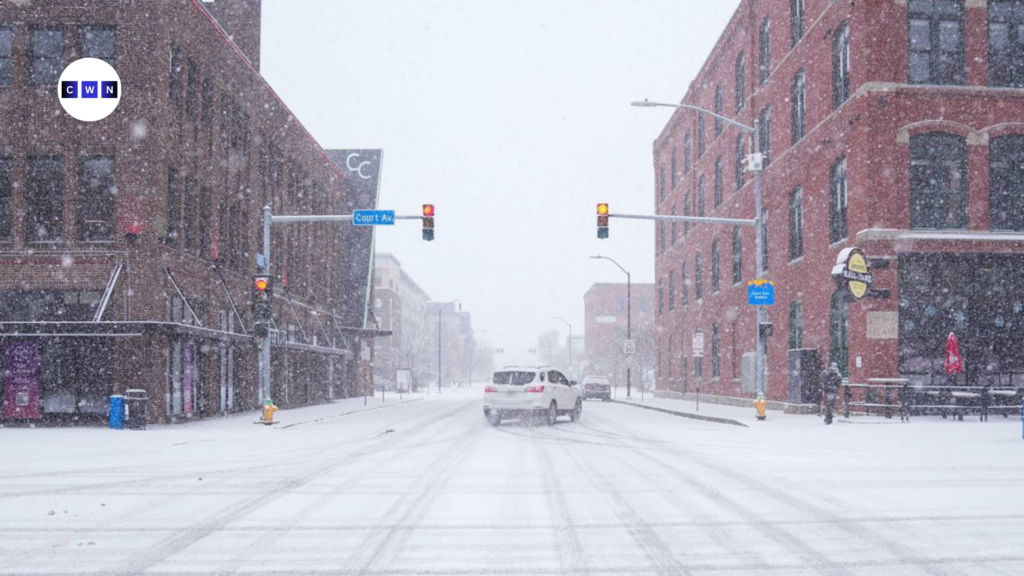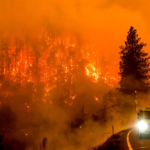Icy weather in the north-west of England is causing school closures and major travel disruptions. With freezing temperatures continuing, authorities and residents are struggling to maintain safety on roads, public transport, and in schools.
Icy Roads and Hazardous Travel Conditions
The current spell of icy weather has created perilous driving conditions, particularly in Greater Manchester, Merseyside, Lancashire, and Cheshire. Motorists are struggling to navigate frozen roads, with black ice and frost creating a slippery and dangerous surface. Numerous accidents and near-misses have been reported, prompting authorities to issue repeated warnings for people to avoid unnecessary travel.
Public transport systems are also bearing the brunt of the freezing weather. The Metrolink tram network in Greater Manchester has faced major delays on key routes, including Manchester Airport, Rochdale, and Didsbury. Transport for Greater Manchester (TfGM) has tried to combat disruptions by gritting bus stations and running trams overnight, but these efforts have had limited success. Despite these measures, delays remain widespread, leaving commuters frustrated.

Rail Services Struggle Amid Flooding and Frost
Adding to the travel chaos, Northern Rail announced that services would not stop at Gathurst station near Wigan due to flooding. This unexpected development has further complicated travel plans for passengers already dealing with icy platforms and delayed trains.
To alleviate the pressure on affected travelers, TfGM has permitted tram passengers to use their tickets on local bus services. However, the alternative arrangements have done little to ease the frustration of those stranded by the cold snap.
Schools Forced to Close Due to Safety Concerns
The severe weather has also led to widespread school closures across the region. Icy conditions on school grounds have made it unsafe for students and staff, leaving administrators with no choice but to cancel classes.
In Stockport, Bramhall High School announced its closure, citing “large swathes of ice” that covered the premises despite the efforts of their site team, who had been working since 4:00 AM to clear the grounds. A spokesperson for the school expressed regret over the situation, explaining that the icy conditions made it “simply not safe” to open.
Similarly, Lymm High School in Warrington had to cancel an event for students to collect their A-Level certificates. The school stated that the abundance of thick ice, including dangerous black ice, posed a significant risk to everyone on-site.
Macclesfield College and Park Lane Special School faced a similar predicament. Emma Shaw, the head teacher of both institutions, described the school grounds as “dangerously icy” and confirmed the closures as a necessary precaution.
Higher Bebington Junior School in Wirral also closed its doors due to icy conditions. In Lancashire, the situation was even more severe, with more than 20 schools across areas like Pendle, Rossendale, the Ribble Valley, and Hyndburn unable to open. Administrators across these schools have expressed their concerns about the safety of students and staff, prioritizing well-being over educational schedules.

Communities Struggle to Cope – School and Other
The icy conditions have not only disrupted travel and education but also posed challenges for everyday life. Residents in affected areas are finding it difficult to navigate even short journeys on foot or by car. Black ice, often invisible to the naked eye, has caused numerous falls and injuries, with local hospitals reporting an uptick in weather-related incidents.
Despite the challenges, communities are banding together to support each other. Many local groups have organized efforts to assist vulnerable residents, such as delivering groceries or clearing driveways. However, the sheer scale of the icy weather has left many feeling overwhelmed.
Authorities Work Around the Clock for updating community or School Authorities
Local authorities and transport operators are working tirelessly to mitigate the impact of the freezing conditions. Gritters have been deployed to treat roads and pathways, but the persistent cold has rendered their efforts less effective in some areas.
TfGM, in particular, has faced significant criticism from commuters over delays and disruptions. The organization has defended its actions, explaining that its teams have been working through the night to keep essential transport services operational. However, the scale of the freezing weather has made it nearly impossible to avoid delays entirely.
Looking Ahead
Weather forecasters have warned that the icy conditions may persist for several more days, with sub-zero temperatures expected to continue. Residents are being urged to exercise caution and stay updated on local weather and travel advisories.
Authorities are also reminding the public to check in on vulnerable neighbors and family members who may be at higher risk during the cold snap. With the ongoing disruptions, patience and community spirit will be essential in navigating the challenges posed by the big freeze.
In summary, the severe icy conditions across north-west England have created a cascade of disruptions, from hazardous roads and delayed public transport to widespread school closures. As communities continue to deal with the impact of the freezing weather, safety remains the top priority for all.
Stay tuned with CWN News for the latest updates.






